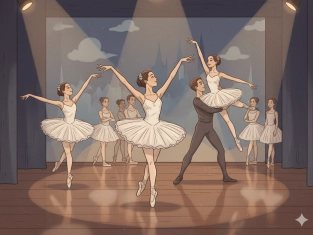Future Continuous vs Future Perfect
Table of Contents
Exercises
Explanation
1. Future Continuous
Form: will / won’t be + verb-ing
We use the Future Continuous to describe actions that will:
A. Be happening at a particular time in the future
It emphasises that the action will be in progress, not finished.
-
At 7 p.m. tomorrow, I will be preparing dinner.
-
Don’t call after nine — we’ll be watching a documentary.
-
This time next weekend, she won’t be studying; she’ll be travelling to the coast.
B. Be temporary or part of a short-term future arrangement
It often describes short stays, temporary routines, or changing situations.
-
I’ll be living with my aunt for a few weeks while my house is painted.
-
During the summer, we’ll be using the small office upstairs.
-
Will you be working from home during the renovation?
2. Future Perfect
Form: will / won’t have + past participle (V3)
Meaning and UseWe use the Future Perfect to talk about actions that will:
A. Be completed before a specific moment in the future
It shows that the action will be finished by that time.
-
By 11 a.m., I will have answered all my emails.
-
They will have completed the new library before autumn begins.
-
Will you have written the introduction by the time the editor calls?
B. Have lasted a certain period by a future date
It highlights the duration of a long activity.
-
By next June, I will have lived in this town for eight years.
-
In two months, she will have worked on this project for half a year.
-
By 2030, scientists will have studied this data for decades.
3. Common Time Expressions
These phrases frequently appear with the Future Perfect and sometimes help identify the correct tense:
-
by / by the time
-
before
-
in a year / in two weeks / in six months
-
by next week / by tomorrow / by 2030
Examples
-
I won’t have learned all the vocabulary by Monday.
-
By the time we arrive, the movie will have started.
-
In a year’s time, he will have collected enough points to graduate.

